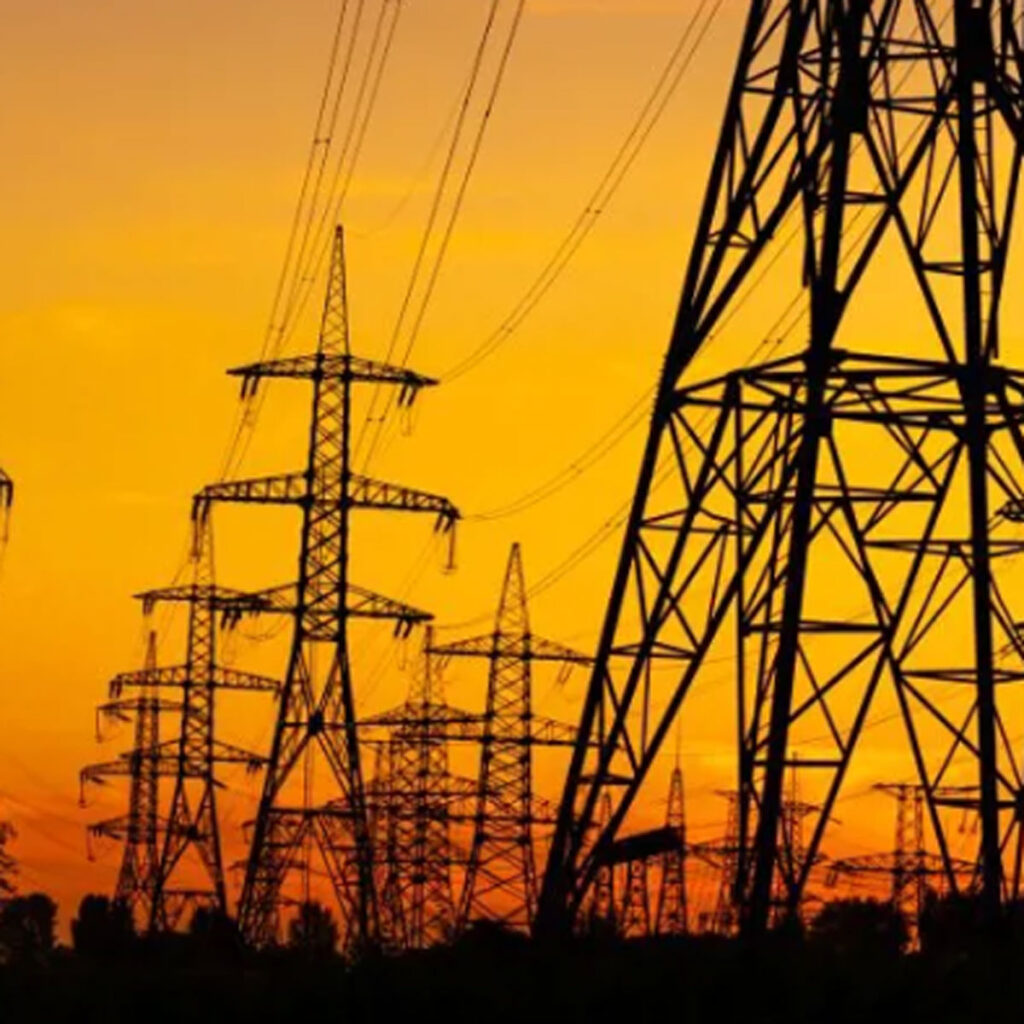Author I Mohammad SIBBIR Ahmed
Director, Energy Policy and Utility Management
USAID’s/Bangladesh Advancing Development and Growth Through Energy Project (BADGE)
Email – [email protected]
LinkedIn – https://www.linkedin.com/in/sibbirahamed/
For the first occasion after taking office in May 2014, Indian Prime Minister Narendra Modi traveled to Bangladeshin early June 2015. The public-sector power utility of Bangladesh, BPDB, and two Indian businesses, Adani Power Limited (APL) and Reliance Power Limited, signed distinct memorandums of understanding (MoUs). Together, the two businesses offered a $5.5 billion commitment. Ex-PM Hasina and her state minister Nasrul Hamid were blindly supported in ruling the nation and sector for the next five years by these two slow-poisoned project deals signed by Indian peers. To build a coal-fired power station in Godda, APL eventually incorporated a subsidiary, Adani Power (Jharkhand) Limited (APJL), on December 18 of that year. After APJL was founded in December 2015, the business presented a proposal to the BPDB. Adani had asked the Jharkhand state government for land for the project by May, and in March 2017, the government consented to purchase about 1000 hectares of land for the Godda coal power plant. Whether in Bangladesh or India, this is how projects are often developed in this area. Project Brief – APL agreed to supply 1496 MW from its 1600 MW coal-fired facility at Godda to the BPDB in November 2017. Additionally, the BJP-run Jharkhand government changed its policy, permitting Adani to export all the plant’s energy to Bangladesh rather than supplying at least 25% of its output for local consumption, as was customary in the past. Ahead of the 2019 Indian general elections, the Modi government changed the laws governing Special Economic Zones (SEZs). This made the Godda project India’s first power plant to be granted significant tax breaks and become a SEZ. Adani was able to avoid paying import taxes on coal and machinery for the project because of this decision. In addition to receiving exemptions from the Goods and Services Tax (GST), a sizable amount of the plant’s equipment was imported from China. On April 7, 2023, Adani Power Ltd. (APL) Godda’s 1,600MW thermal plant unit received its commercial operating date (COD). The Godda project transmission line, which traverses Bihar and West Bengal, enters Bangladesh through the Chapainabagonj districts and transmits power to Bangladesh via a 230KV express line. The Bangladesh grid is directly synchronized with this endeavor. Although the project was initially intended to sell 25% of its power to the Indian market, the strategy has been altered, and as a result, Bangladesh will receive 100% of the energy for the next 25 years following the COD date. The agreement between Adani and BPDB has never been disclosed, as it would constitute a breach of confidentiality. Through a 100 km water line, the enterprise obtained colling water from the Ganges River. The fuel for this project was sourced from the Queensland, Australia-based facility that Adani owned and operated. An extraordinary infrastructure is required to maintain the plant’s committed production to BPDB, which requires a supply chain of 6-7 million tons of coal annually. How tariffs have been defined – A transaction game is what an unsolicited tariff signifies! To alleviate power shortages in Bangladesh, the Awami League government passed the Quick Enhancement of Electricity and Energy Supply (Special Provisions) Act of 2010, popularly referred to as the Quick Power Act. The law aimed to speed up the production, distribution,
marketing, and transportation of energy and power. By avoiding legislation, it also allowed the government to accelerate the development of electricity initiatives. Qualities The bill gave the energy minister the sole power to approve arrangements for the purchase of electricity. It also allowed the importing of coal, LNG, natural gas, and petroleum products, as well as the exploitation of mineral resources. The statute will remain in effect until October 2026 after being extended multiple times. In the same way that more than 20,000MW of political and stay-in-power agreements were formed with both domestic and foreign enterprises, the tariff was negotiated rather than put out to bid. Most recently the current interim government canceled this act and committed to practice competitive bidding for any future procurements of power and energy. The state minister, Bangladesh’s
ruler Sheikh Hasina, and other concerned signatories signed it out of their flimsiest personal desire to surrender the nation’s sovereignty. The public has not been informed of the levelized tariff for this project. Bangladesh’s power project development system has always been entirely distinct from that of any other nation in the globe. In addition to the deal with local developers, the developer will have an exclusive commitment for the next 22–25 years, which includes a commitment to fuel payment as a pass-through component in the tariff, fixed plus variable OnM payment, anddebt services as a capacity payment. Several performance metrics, including minimum energy requirements, annual availability commitment, coal heat value, and the worldwide market price of coal purchased for the project, are used to determine the levelized tariff. Now, how are the guaranteed capacity fee and other tariff components determined by the tariff distribution constructs? The project’s leveled tariff amount is the subject of numerous rumors. Nobody knows enough to draw firm conclusions on the precise tariff level. The net payment to the sovereignty is significantly impacted by FOREX volatility. Is trying to end the project realistically feasible? The answer is straightforward: no! Except for the gentlemen’s renegotiation, careful oversight, and adherence to the Power Purchase Agreement and Implementation Agreement overall, ending the inground project in Bangladesh presents a comparable issue. Additionally, it has a lot more parts that will never be canceled. The most important factors to deal with are the following: arbitration, governing law, conditional precedence of financier, project compliance, insurance, guarantee, restrictions on acquisitions and transfers of shares in the sovereign country, financing What Bangladesh could do: review, and general lender requirements. Bangladesh may make that a required power source for the country’s grid. A careful observation of –

- The supply chain for coal and the guaranteed heat quality of the coal that is supplied to the plant.
- Since the developer oversees the coal supply, adherence to the PPA’s suggested heat content is required.
- The quality of the electricity generated, and the disruptions made to the Bangladeshi grid are closely
monitored. - Strict oversight and management of the AMC’s fixed and variable operating and maintenance expenses.
- Any change to the agreement will incur fees, therefore careful consideration of the project’s
components, third-party agreements, financing paperwork, lender requirements, etc. - Let’s get as much of its output as possible to transmit to Bangladesh.
- Establish an in-person monitoring system at the plant to guarantee project compliance.
- PGCB should play a significant role in meeting the GRID power requirements by providing the best
value energy with provisions for demand maximization, grid quality accomplishment, and fully reliableoperation of the plant. - To get the most out of it, forecast monthly, quarterly, and annual OnM activities and conduct regular and monthly reviews of project performances.
- Bangladesh bears responsibility for the project’s success or failure if they don’t know what they are getting in exchange for what costs. How and under what parameters Bangladesh could proceed with the termination conversation The termination of bilateral investment treaties (BITs) has grown in significance as countries reassess the relative benefits and hazards of these agreements. This shift reflects the growing awareness that older
generation BITs sometimes fail to consider contemporary investment dynamics and may unnecessarily prioritize investor rights over state sovereignty and the public good.
The Vienna Convention on the Law of Treaties (VCLT) and the provisions of each BIT both regulate BIT termination. Termination and survival clauses are the two main parts of relevance. - Termination Clauses: These specify the manner and timing of a BIT’s termination. These fixed-term clauses, which often include a set notice period, permit termination after a certain initial term with an option for renewal.
- Survival Clauses: In this scenario, the investor is entitled to endure for a predetermined amount of time.
- Termination by Consent with Renegotiation: Several states substitute new accords with revised terms for existing treaties. For example, Australia ended its previous BITs with Uruguay and Hong Kong to negotiate new treaties.
- Termination by Consent Without Renegotiation: Certain states, including EU members, cancel BITs completely without offering substitutes, particularly for intra-EU BITs that are thought to violate EU legislation.
- Dealing with Survival Clauses: Negotiating shorter terms, restricting provisions (such as investor-state dispute settlement), or reaching a consensus to completely void these clauses are some ways to counteract survival clauses.
- Termination by Consent: Gives room for renegotiation conditions and flexibility in handling survivor provisions.
- Unilateral Termination: This removes the need for partner states’ approval and permits instant policy alignment.
- Tracking Important Dates: To prevent unforeseen renewals or lost chances, keep an eye on important dates like survival clauses, termination windows, and renewal periods.
- Using the project with a 90% supply commitment, renegotiating liquidated damage and the overall commitment on debt servicing, and negotiating the tariff using a best-practiced international framework while closely monitoring the price, quantity, quality, and electricity requirements of fuel.
- Verify the project’s financial performance, the guaranteed structure, the insurance provision, the lenders’ repayment schedules and status, and several other provisions.
- Mutual Agreement of Termination: Fairbrother negotiations may lead to termination if ADANI controls all its energy sales to the Indian market. ADANI will not abandon this lucrative project. On this project, Adani is in a stronger position. The Bangladesh Power Development Board is disadvantaged in this transaction because of corruption, politically influenced project awarding, non-solicited project procurements, and project approval based on individual interests. Winning within the UNCTAD framework and in international arbitration will be very expensive. The Indian government has previously permitted ADANI to sell its plant generation in India. Therefore, there is value in the deal itself. Conclusion Bangladesh must calculate whether to continue or stop. close observation of the trends in the coal market, plant performance, and a visual representation of the plant’s performance from Bangladesh and the plant itself. Adani may, if permitted, review debt obligations and financial restructuring to renegotiate tariffs and performance guarantees. Utilizing the plant’s maximum capacity is desired. The people of Bangladesh must pay the price for the complete corruption of previous governments.

Leave a Reply
You must be logged in to post a comment.